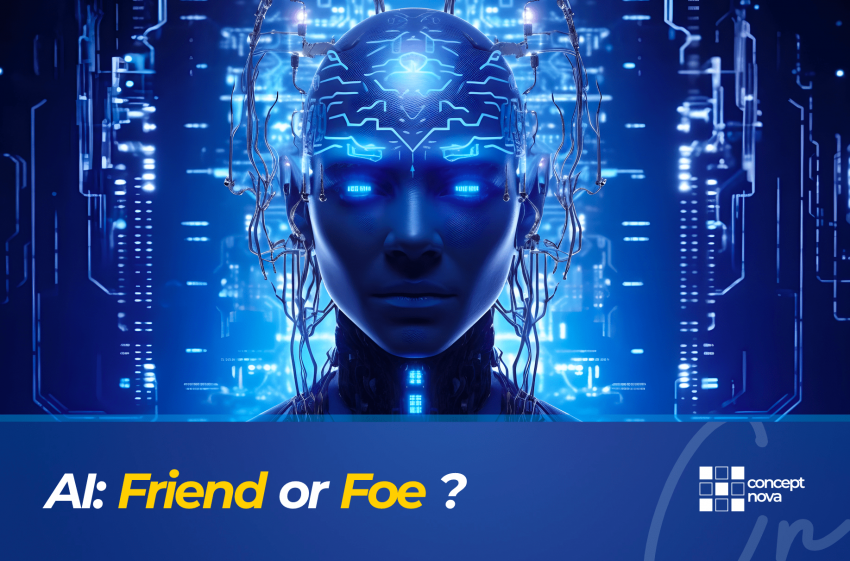According to IBM: 34% of companies currently use AI, and an additional 42% are exploring AI. 35% of organizations are training and reskilling their teams to use new AI and automation tools. Is AI our trustworthy helper, improving our businesses and capabilities, or is it the villain lurking in the shadows, threatening our jobs, privacy, and even our very existence?
Hi there, come on in and make yourself comfortable. Today, we’re getting into one of the most intriguing, controversial, and consequential topics of our time:
In recent years, AI has become increasingly woven into the fabric of our society, daily activities, and business operations. We’ve seen AI powering virtual assistants like Siri and Alexa. We’ve also seen it drive advancements in healthcare, finance, transportation, and beyond, AI is everywhere. But with its ubiquity comes a pressing question: is AI a force for good, enhancing our lives and capabilities, or does it pose a threat to our jobs, privacy, and even humanity itself?
AI: The Game-Changer in Business
Artificial intelligence has undoubtedly transformed the way we do business. You can find this in predictive analytics and personalized customer experiences, AI empowers businesses to make smarter decisions and operate more efficiently than ever before. Take customer service, for example. AI-powered chatbots can provide round-the-clock support, answering queries and resolving issues in a matter of seconds. This not only improves customer satisfaction but also frees up valuable human resources for more complex tasks. In essence, AI is our ally, propelling our businesses forward into the digital age.
The Job Market in the Age of AI
But what about jobs? Ah, the million-dollar question. Many fear that AI will lead to widespread unemployment as machines take over tasks traditionally performed by humans. However, it’s not all doom and gloom. You will quite agree with me that,while AI may indeed automate certain jobs, it also creates new opportunities and industries. Think about it: someone has to design, develop, and maintain these AI systems, right? That’s where we come in. By accepting AI and investing in upskilling our workforce, we can ensure that our businesses remain competitive in the constantly changing job market.
How About Privacy in the Age of Big Data?
Now, let’s talk about privacy. With great power comes great responsibility, and AI is no exception. As AI systems collect and analyze vast amounts of data, concerns about privacy and data security are at an all-time high. Who owns this data? How is it being used? These are questions that we, as business owners, must grapple with. However, it’s not all bad news. AI can actually enhance privacy by detecting and preventing security breaches before they happen. By implementing robust data protection measures and being transparent with our customers, we can tap into the power of AI while safeguarding their privacy.
Ethical Considerations: Humanity’s Relationship with AI
Last but not least, let’s touch on the ethical implications of AI. As AI becomes more advanced, questions arise about its impact on society and humanity as a whole. Will AI surpass human intelligence and render us obsolete? Or will it augment our capabilities and usher in a new era of innovation and progress? The truth is, it’s up to us to decide. By promoting a culture of responsible AI development and ethical use, we can ensure that AI remains a force for good, improving our lives without compromising our values.
To Finish:
So, dear reader, yes you, where do you stand in the AI debate? Do you see AI as a friend, helping us handle the complexities of the modern world, or as a foe, threatening our jobs and privacy? I’d love to hear your thoughts. Drop a comment below and let’s keep the conversation going.
Remember, whether AI is a friend or a foe ultimately depends on how we choose to wield its power. So let’s use AI responsibly and pave the way for a brighter, more innovative future.
Thanks for reading, and until next time, stay curious.

